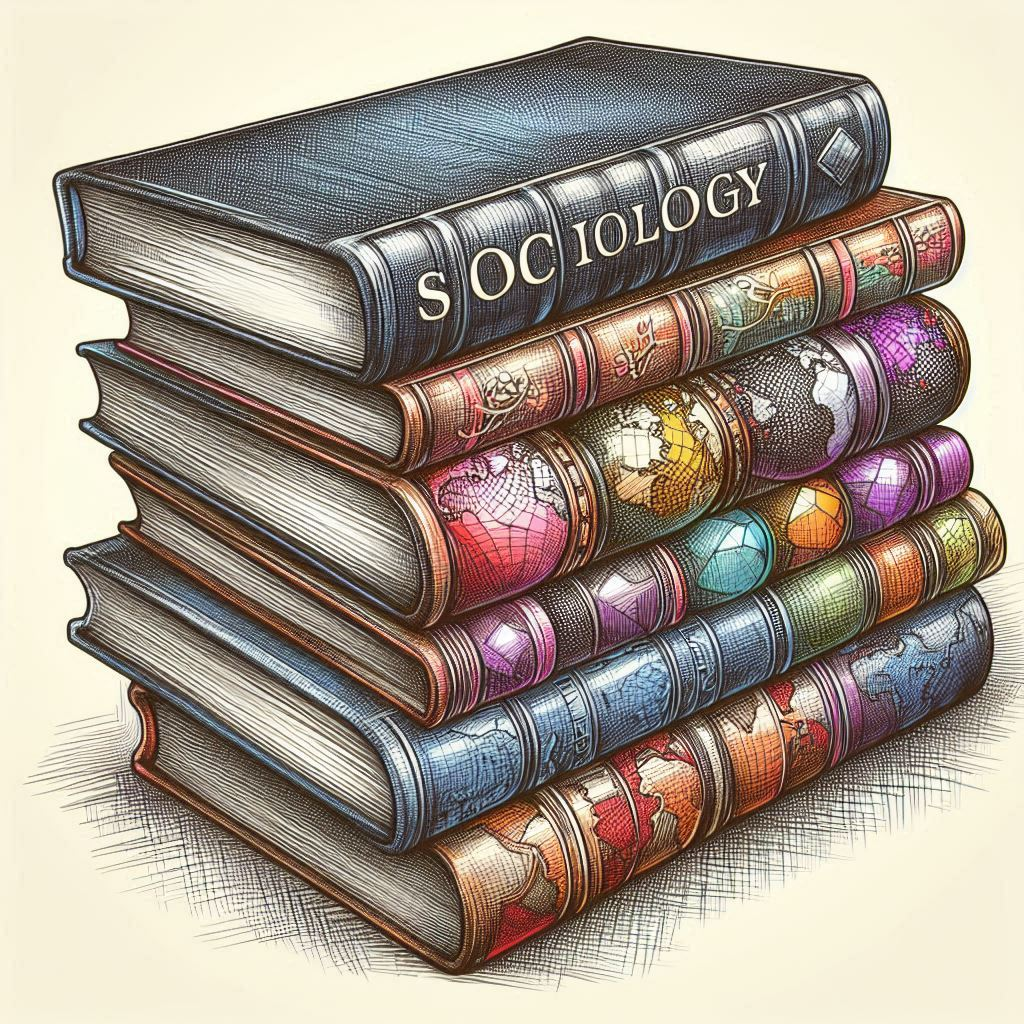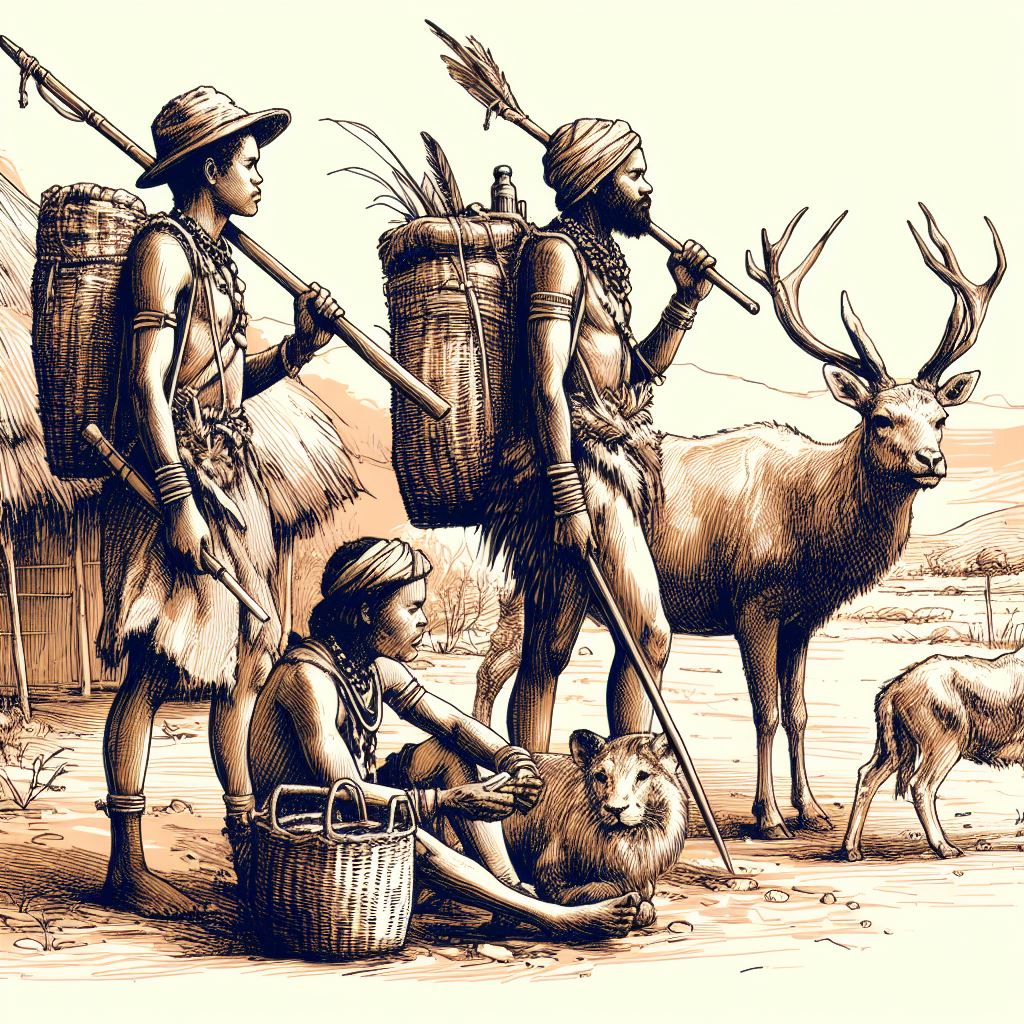Sociology has a long past but a short history. Sociology, as a science of society, emerged as an independent social science in the 19th century. Before this period, it was treated as Social Philosophy or Philosophy of History. We will discuss in detail the origin and development of Sociology.
Intellectual Forces in the Origin and development of Sociology
The earliest attempt at sociological study can be traced to ancient philosopher Confucius (551-479 BC) writings on the importance of social roles. Some consider Ibn Khaldun, a 14th century Arab Islamic scholar from North Africa, to have been the first sociologist. His ‘Muqaddimah’ was perhaps the first work to advance social scientific reasoning on social cohesion and social conflict. However, it was only in the 19th century that systematic attempts were made to study society and to establish a science of society, viz. Sociology.
The term ‘Sociology’ was first used by French Essayist Emmanuel-Joseph Sieyes in 1780 in an unpublished manuscript. Later on, it was independently coined and defined by French Thinker Auguste Comte, generally considered as ‘Father of Sociology’, in 1839. The credit for establishing Sociology as an independent discipline is associated with the five giant figures of sociology known as ‘Founding Fathers’. Those were:
Auguste Comte (1798-1857)
He coined and defined the term ‘Sociology’ and insisted on a positive (scientific) approach in sociology. He divided sociology into two broad areas “social statics” (social structure and function) and “social dynamics” (social change and progress).
Herbert Spencer (1820-1903)
He adapted the term sociology and wrote many books on it. He stressed the interdependence of different parts of society. “Theory of organic analogy” and “Social Darwinism” are his important contributions.
Emile Durkheim (1858-1917)
He is a prominent figure in sociology. He attempted to define the subject matter of sociology and establish it as a separate academic discipline. His sociological analysis is based on the concept of “Social Facts”.
Max Weber (1864-1920)
Focused on macro as well as micro-level. He introduced a subjective understanding approach known as Verstehen, for studying social phenomena.
Karl Marx (1818-1883)
Focused mainly on conflict and economic relations in society. He believes that the economy is the base in society on which other institutions like Religion, polity etc are built. On economic basis, he divided society into two classes “Haves” and “Have Not’s” which are in continuous conflict with each other.
Thus, with the contributions of the above thinkers and later on by many others, Sociology has developed as an independent discipline.
Factors contributed to the Origin and development of Sociology
All social sciences are profoundly shaped by the social conditions in society. This is particularly true of sociology, which not only is derived from that conditions but takes the conditions in society as its basic subject matter. Following are a few of those conditions which were of utmost significance in the development of sociology:
Political Revolutions
There were many political revolutions after the French revolution in 1789. These brought a number of changes in society. The negative effects (chaos and disorder in society) of such changes attracted the attention of earlier theorists. Social order was the main concern of thinkers like Comte, Durkheim etc during this period.
The Industrial Revolution and rise of capitalism
The Industrial Revolution was not a single event but many interrelated developments that transformed the Western world from a largely agricultural to an industrial/capitalist system. The structure of the whole society changed; big factories and economic bureaucracies were established. People left agriculture for industrial occupations. There also arise reactions against capitalism. Four major thinkers – Karl Marx, Max Weber, Emile Durkheim, and Georg Simmel—were preoccupied with these changes and the problems they created for society as a whole.
The Enlightenment Period and the Conservative Reaction to it
The Enlightenment was a period of remarkable intellectual development and change in philosophical thought. A number of long-standing ideas and beliefs—many of which related to social life—were overthrown and replaced during the Enlightenment. With an emphasis on reason, the Enlightenment philosophers (Montesquieu and Rousseau) were inclined to reject beliefs in traditional authority.
However, conservatives (Bonald and Maistre) turned away from the rationalism of the Enlightenment. They not only recognized the irrational aspects of social life but also assigned them positive value. Thus, they regarded such phenomena as tradition, imagination, emotionalism, and religion as useful and necessary components of social life. The conservatives tended to emphasize social order that become central themes of the work of several sociological theorists.
It was an alternative to capitalism. Although some sociologists favoured socialism as a solution to industrial problems, most were personally and intellectually opposed to it. On one side, Karl Marx was an active supporter of the overthrow of the capitalist system and its replacement with a socialist system. While on the other side, Weber and Durkheim, were opposed to socialism (at least as it was envisioned by Marx). Although they recognized the problems within capitalist society, they sought social reform within capitalism rather than the social revolution argued for by Marx.
Feminism
Feminism means movement for women’s liberation. It raised the issue of gender discrimination, violence against women and women empowerment etc. All of this had an impact on the development of sociology, in particular on the work of a number of women in or associated with the field—Harriet Martineau (Vetter, 2008), Charlotte Perkins Gilman, Jane Addams, Florence Kelley, Anna Julia Cooper, Ida Wells-Barnett, Marianne Weber, and Beatrice Potter Webb, to name a few.
Urbanization
Partly as a result of the Industrial Revolution, large numbers of people in the 19th and 20th centuries were migrated to urban areas. This massive migration brought many difficulties for those people who had to adjust to urban life. In addition, the expansion of the cities produced a seemingly endless list of urban problems—overcrowding, pollution, noise, traffic, and so forth. The nature of urban life and its problems attracted the attention of many early sociologists, especially Max Weber and Georg Simmel.
Religious Change
Social changes brought on by political revolutions, the Industrial Revolution, and urbanization had a profound effect on religiosity. Many early sociologists like Comte, Durkheim, Marx and Parson studied religion in different ways.
Growth of Natural Sciences
Growth in sciences in the 19th century inspired many thinkers to make study of society in a scientific way. Especially Comte, Durkheim, Spencer, Mead, and Schutz used the scientific method in sociology.
Sociology as a subject in Universities:
- 1876 – In Yale University, US.
- 1889 – In France.
- 1907 – In England.
- 1919 – In Bombay University, India.
- 1999 – In University of Jammu, Jammu.
Thus, it can be concluded that though there were studies made on society by earlier social thinkers too but the scientific study of society began only in the 19th century by the founding fathers of sociology which led to the emergence of a new subject, viz., Sociology. Various social and intellectual forces played a significant role in its origin and development.
Explore more


